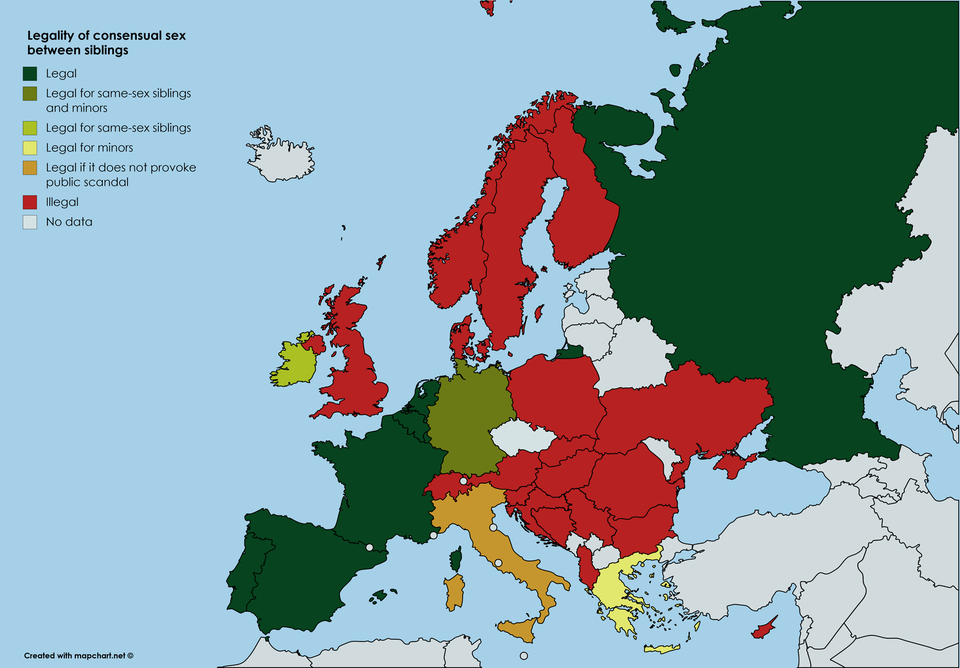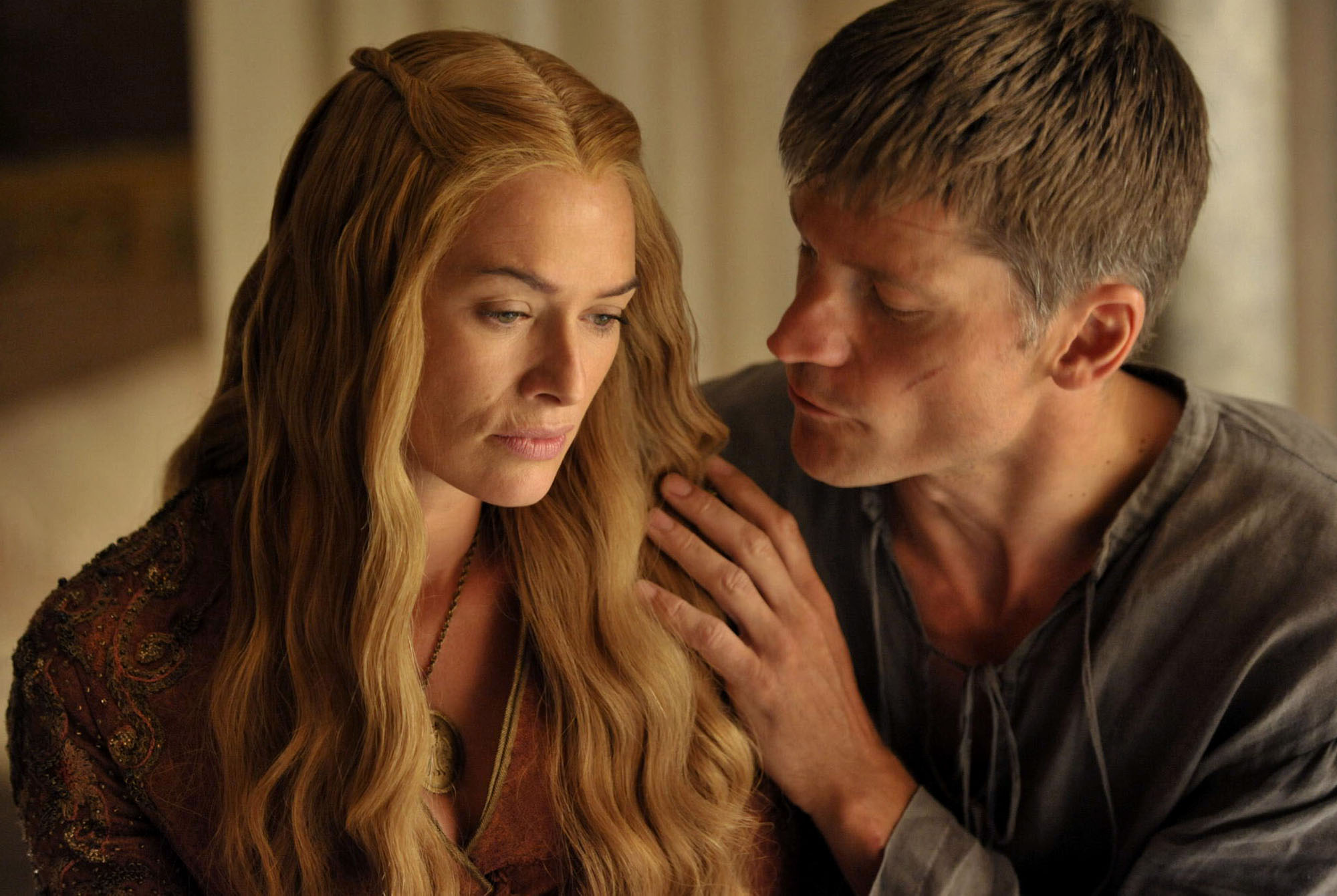We Spoke to Brothers and Sisters in Incestuous Relationships
Credit to Author: Chloe Combi| Date: Wed, 20 Nov 2019 14:11:25 +0000
In 2015 I published a book, Generation Z: Their Voices, Their Lives.
The product of thousands of interviews with Gen Z kids from across the UK, I was pleased with what was discussed: racism, sex, crime, struggles with gender and sexuality, death, disability and inequality, among other things. The accounts that didn't make the cut were lost because of space, repetition or for legal reasons. But there was one I left out for a different reason altogether.
I met Grace early in the research process. She wanted to talk about her struggles with mental health and eating issues, her parents – the type who should never have been allowed to raise a child – and her ineffective and uncaring carers. The collateral damage to the then-17-year-old was profound: acute anxiety, OCD, a combination of anorexia, bulimia and binge-eating that had hospitalised her three times, several unsuccessful early teenage suicide attempts and a tendency to take any drink, drug or sexual encounter she was offered.
The one bright spot and transformative presence in Grace's life seemed to be her quiet, steady boyfriend, Adam. By her description, he'd "sorted her out". She clearly loved him deeply, and I thought little more about it or him. Until a few months later.
Some time into the interview process, Grace admitted to me that, as well as being her boyfriend, Adam was also her brother. Full brother. Not step-brother or even half-brother.
Having spent the previous four years interviewing young people from all kinds of backgrounds, my poker face was pretty good – but faced with someone admitting to something so taboo it was hard not to ask the obvious questions. Did they sleep together? Yes, all the time. Did their parents know? She/they had no idea where her parents were and hoped they were dead. Did anyone else know about their background? No. Did she see a future for them as a romantic couple, i.e., marriage and family etc? Yes, absolutely.
Grace eventually told me the whole history of how they got together, and because of her fragility and the incredibly controversial and tragic nature of their story I became concerned the press might really glom onto it and want to find out who Grace and Adam were, so I and my publishers decided to withhold it from my book. Grace and Adam are still together romantically, and she was happy for me to allude to them here.
This encounter with Grace and Adam triggered an interest in the prevalence and dynamics of these kinds of relationships. I'd always assumed incestuous relationships to be rarer than a teenager who eschews social media, and always the product of abuse. But while parental incest is illegal in most countries, many countries take a much more liberal stance on sibling incest.

To scratch beneath the surface of this highly peculiar and unspoken issue is to reveal that not only are incestuous relationships more common than anyone might expect, but also in some cases not only consensual but motivated by the same things as more conventional adult relationships: romance, need, desire, loneliness and attraction. This raises all kinds of ethical questions about consent, victimhood, legality and morality, but it also raises another big one: can anyone ever really have a healthy, consenting sexual and emotional relationship with a close or blood relative?
Anna, 23, thinks it's possible. She describes her twin brother as "more like a boyfriend" throughout their older teenage and into their university years. By her account they "started to have feelings for each other" in their younger teenage years that eventually manifested in an intense sexual and emotional relationship that precluded any other romantic relationship for either Anna or her twin, Stephen.
The siblings' non-platonic relationship eventually fizzled out when Anna met her current partner in her third year of university. Anna's partner and the twins' parents have no idea about their past relationship, though Anna maintains it was one of the best things to happen to her and vital for both her and her brother's sexual and emotional development
Daryl*, 24, disagrees that anyone can have a healthy romantic relationship with a blood relative. He had a romantic and sexual relationship with his half-sister, Jessica, and it ended up causing enormous damage to both he and Jessica, as well as the entire family, when they were eventually found out in "pretty dramatic circumstances".
Getting professionals to talk on the record about incest outside the realms of abuse is difficult, because they understandably fear it both legitimises it and undermines the many victims of nonconsensual incest. But the general consensus is that one of the driving factors of more consensual incestuous relationships seems to be paradoxically both the fractured nature of modern families and the closeness of other families.
If you haven't grown up together – as in the case of Grace and Adam – you don't have the gross-factor and immediate familiarity that other siblings develop via living together from birth. Equally, despite our hyper-connectivity, people are more isolated than ever. As friendship groups and dating-culture retracts, plenty of people socialise and hang out with family members – especially when they're close in age. Though rare, it is clearly not out of the realms of possibility that this can lead somewhere other than playing Playstation together – as was the case with twins, Anna and Stephen.
Statistics on what we might cautiously call "consensual incest" don't really exist, and most experts maintain that – particularly in the case of parental incest – there is no such thing, that it is always rape or coercion (on the part of the parent). The internet, of course, tells a different story. There are extensive and active "pro-incest" communities across the globe, discussing their own incestuous relationships in tones ranging from guilt to pride to overt horniness. These communities also offer each other support and discuss legal issues and ways to campaign for legalised incest.
To confuse the issue further, incest is viewed very differently depending on where you are and who's involved. My research focused entirely on younger people (Gen Zs and millennials) and on the sibling/half-sibling/step-sibling dynamic, precisely because it's a much greyer area in many parts of the world.
Parental/child incest seems – rightly – to be universally viewed as clear-cut abuse, not least because the unequal power dynamic in a parent/child relationship prohibits any solid argument of consent. But the sibling dynamic does (in some quarters) seem to muddy legal, ethical and moral waters. For example, in weighing a case of an incestuous half-sibling relationship that had produced four children, in 2014 the German Ethics Council concluded that "the right of adult siblings to have sexual self-determination in a consensual relationship weighs heavier in these cases than the abstract good of the family".
While gathering data on the more "consensual" end of the incest spectrum hasn't happened anywhere globally, the statistics on incest are pretty startling. In the USA in the 1990s it was estimated that 100,000 to 1 million cases of incest occurred annually. The scale of global incest varies depending on the figures you look at – mostly because the highly private nature of the phenomenon obscures complete accuracy – but it is thought that incest happens to somewhere between 2 percent to 10 to 20 percent of the population. In Brazil, the prevalence of incest estimates range widely, from 0.05 percent to 21 percent.

Despite global variations in attitude, society in general still tends to view incestuous relationships squeamishly – and understandably so. However, popular culture – and the type of popular culture most of us consume and love, not the weird niche kind – is full of incest. Game of Thrones' sibling lovers, Jaime and Cersei Lannister, seemed to turn the public far more on than off, with social media awash with memes about our discomfort at stanning their distinctly non-platonic relationship.
The same programme featured an intense sexual relationship between aunt and nephew, Daenerys Targaryen and Jon Snow, and one of the central unifying features about the last series of GoT (other than the fact everyone hated it) was how insouciant everyone was about the reveal that blood relatives had been boning.
Incest is not just reserved for swords and dragons. The reason that Flowers in the Attic has been a hide-it-under-the-bed rite-of-passage book (and more recently a film starring Kiernan Shipka) for generations of adolescent girls (and some boys) is absolutely because of the thrillingly illicit and icky central incestuous relationship between brother and sister, Chis and Catherine. Off the books family relationships have also either been overtly or covertly alluded to in everything from Star Wars and Cruel Intentions to Dexter and Arrested Development.
But where incest really comes out of hiding is in pornography: incest porn is one of the fastest growing and most watched genres of pornography. Though the industry sort of gets away with the illegal nature of incestuous sex by titling it stuff like "Fucking my Step-brother" and "Punishing my Naughty Stepdaughter", one suspects viewers are watching it less because of the legal and moral disclaimers and more for its highly taboo and forbidden content. While pornography is not exactly a reflection of real world behaviour, it does hold a mirror up to human sexual desire and fantasies – and if Freud were alive today he'd have a field day with the statistics from Pornhub and other tube sites.
That said, incestuous relationships – even the ones the participants describe as consensual – can have terrible consequences and can cause real damage. With that in mind, it's unlikely incest will ever be accepted as "normal", or become a relationship dynamic we're comfortable with.
Society's judgment absolutely compounds Grace's (and doubtless others like her) sense of being an aberration, but it doesn’t change the way she feels about her boyfriend/brother. Grace and Adam eschew friends, outsiders and most interests, because they fear being found out and driven out, but that's the price they have to pay for breaking such a transgressive taboo.
One professor of psychology at Oxford, who asked not to be named, remarked that "the trouble with our prohibitive and moral attitudes to sexuality we find squeamish or immoral – like, say, incest or sexual attitudes that are illegal – is it prevents us looking at them objectively. Rather than accept it is there and try to work with it and understand it better, we treat these people like pariahs and drive them out with literal and metaphorical pitchforks like we did in the Dark Ages. People are having sex with close blood relatives, and sometimes it is far more nuanced than we are perhaps comfortable with."
*Names have been changed.
@WriteClubUK / lilylambiekiernan.com
This article originally appeared on VICE UK.